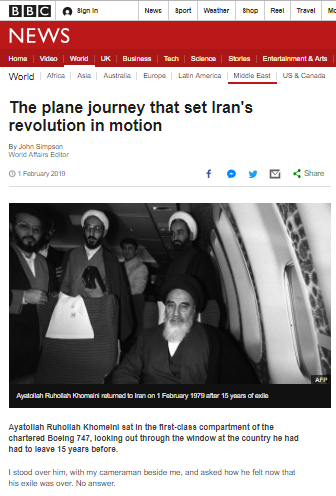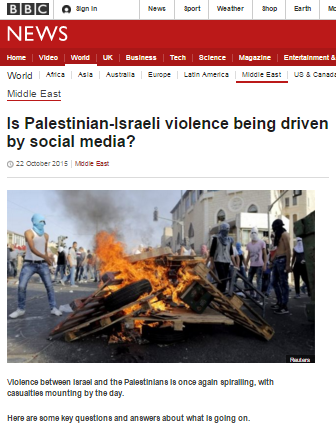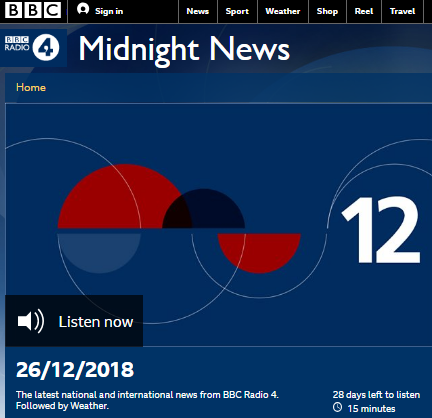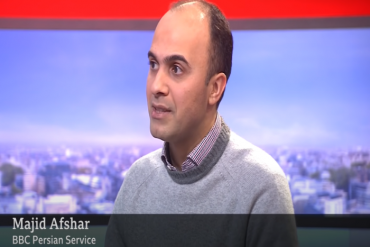On November 19th – the day following the terror attack in the Kehilat Ya’akov Synagogue in Jerusalem – the earlier edition of the BBC World Service radio programme ‘Newshour’ included an item by the Jerusalem Bureau’s Kevin Connolly (available here from 14:00) which is interesting because it was introduced by presenter Razia Iqbal as a reflection “on the history of this contested city” and hence provides some insight into the accepted BBC narrative on Jerusalem in general, as well as the one being promoted with regard to the current surge in violence and terror attacks.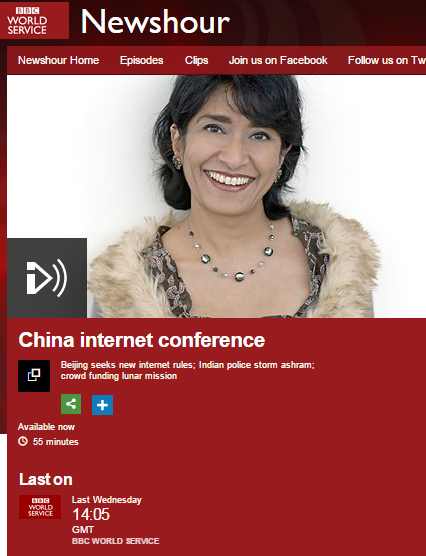
Connolly opened by equating the building of apartments with terrorist suicide bombings:
“Jerusalem has been a place of division and dispute and discord for as long as history has been written. The city was shaped by ancient battles and modern wars but the suicide bombings and settlement constructions of more recent times fuel a sense of separateness – sometimes a hatred – that has its roots in its status as a city holy to Jews and Muslims alike.”
He went on:
“To walk the streets of the Old City within walls built 500 years ago is to sense the antiquity of the dispute and to feel how the closeness of Muslim and Jewish quarters have created a kind of friction of proximity. Grievances passed through the generations lie around as thick as autumn leaves and as dry as tinder, waiting only for the spark of circumstance to ignite them. There is a political vacuum here. The peace process between Israel and the Palestinians is so moribund that the phrase just isn’t part of the daily vocabulary of politics. There was the appalling civilian death toll in the summer fighting in Gaza and there is the corrosive issue of continuing Jewish settlement in Arab East Jerusalem.”
So, couched in Connolly’s flowery language are several messages for listeners, with the first one being that there is a very old dispute in Jerusalem which he is not going to fully explain. However, what audiences are clearly intended to take away as factors causing the contemporary version of that dispute are the absence of political negotiations, the death toll in Gaza in the recent conflict (yet again we see the BBC presenting those hostilities as having taken place exclusively in the Gaza Strip) and Israelis building and living in specific areas of the city. Both the latter two factors will be understood by listeners to be Israeli-caused and members of the audience who followed the BBC’s coverage of the collapse of negotiations last April would be likely to believe that Israel is responsible for the lack of political process too. No Palestinian contributions to the dispute appear on Connolly’s list. He continues:
“But today, as often in the past, those grievances are focusing on one holy site within these city walls. It is a compound which contains both the Al Aqsa Mosque and the Dome of the Rock, known to Muslims as Haram al Sharif: the place where the prophet Mohammed is believed to have ascended into heaven. It’s also the spot on which the ancient temples of the Jews stood: those buildings destroyed by foreign invaders which contained the Holy of Holies and which are the cornerstone of the Jewish faith and identity. To Jews it is the Temple Mount. The Christian Crusaders coveted it too, but the sectarian passion that made Christianity a factor in these bitter struggles has at least receded over time. By long-standing tradition only Muslims are allowed to pray here. Jews and Christians may visit, but may not threaten that monopoly of worship. Any hint that that status quo might change can have an incendiary effect in Palestinian society and in the wider world which is immediate and deeply felt. It is genuine too, although of course extremist Palestinian groups can manipulate the fear by circulating rumours that change is in the wind.”
If at this stage listeners anticipated finally hearing some BBC reporting on how the topic of Temple Mount is used by groups ranging from Salafist Jihadists, the Northern Islamic Movement, Hamas and the Muslim Brotherhood through to the Palestinian Authority and Fatah to “manipulate fear” for political benefit, they would be sorely disappointed yet again. Instead, Connolly’s report turned to a very tepid and euphemistic account of the 1929 Arab riots which, like the recent Radio 4 programme on the subject of the Hebron massacre, erases the topic of Arab incitement.
“When Britain governed the Holy Land between the wars, clumsy management of this status quo issue provoked widespread violence that lasted for months and left more than a hundred people dead.”
Connolly goes on:
“Now some Jews do want that status quo to change. They want the right to worship at their own holiest place. We’ve been assured off the record at the highest levels of government here that no change in the current arrangements is contemplated or will be tolerated. The problem is, of course, that in this poisonous atmosphere fuelled by toxic cocktail of suspicions, there are large numbers of Palestinians who just don’t believe that assurance.”
Why Connolly felt the need to describe “off the record” statements from the Israeli government is unclear: identical statements clearly explaining the government’s position have been made publicly on numerous occasions. But of course what is really interesting about both Connolly’s item and the BBC’s treatment in general of this topic is that it has completely avoided any exploration of why the issue of equal rights of worship for members of all religions to whom that site is holy should raise such opposition and be considered so incendiary in the 21st century.
Connolly closes:
“In the Jewish religious tradition of Jerusalem, the dead of yesterday’s attack – killed as they worshipped – were buried within hours. A car toured the neighbourhood alerting mourners to the funeral of Rabbi Moshe Twersky. It’s thought that his grandfather died in those riots back in the 1920s: a grim family history that illustrates the wider history of this place. Palestinians too have died in political violence, of course. We are left to wonder – as previous generations have wondered – how many more funerals there may be before this current cycle of violence plays itself out.”
Once again, BBC audiences are presented with a report which avoids any serious reporting on the contribution of incitement, conspiracy theories and glorification of terrorism by Palestinian leaders and official sources to the recent surge of violence and terrorism in Israel.

